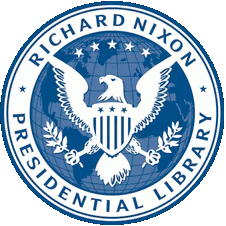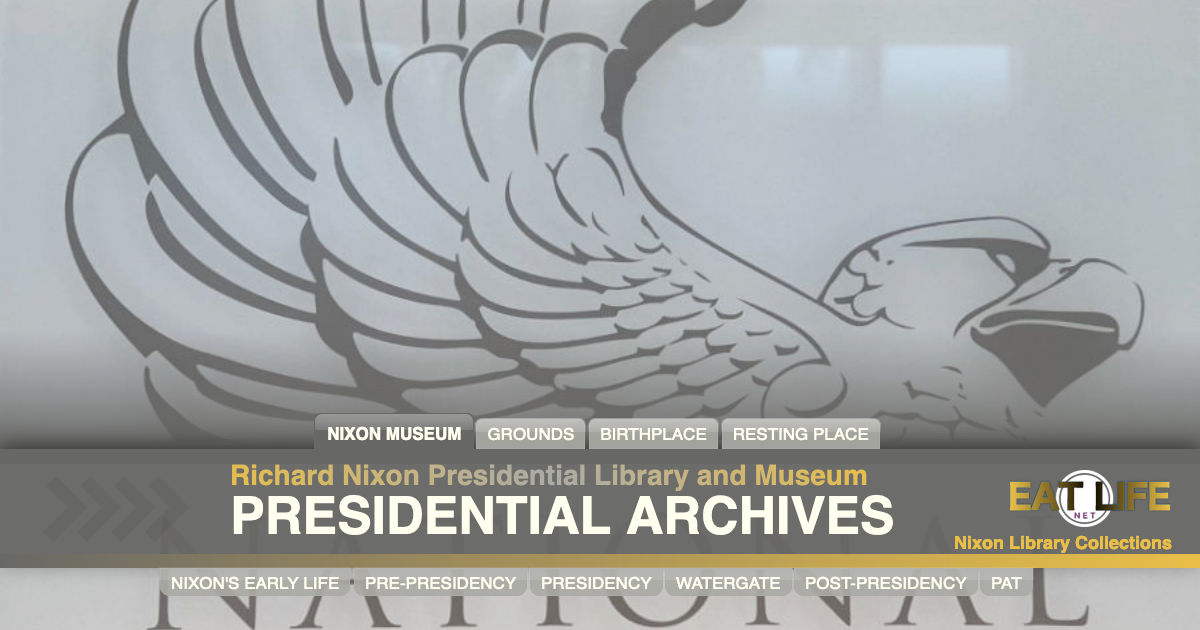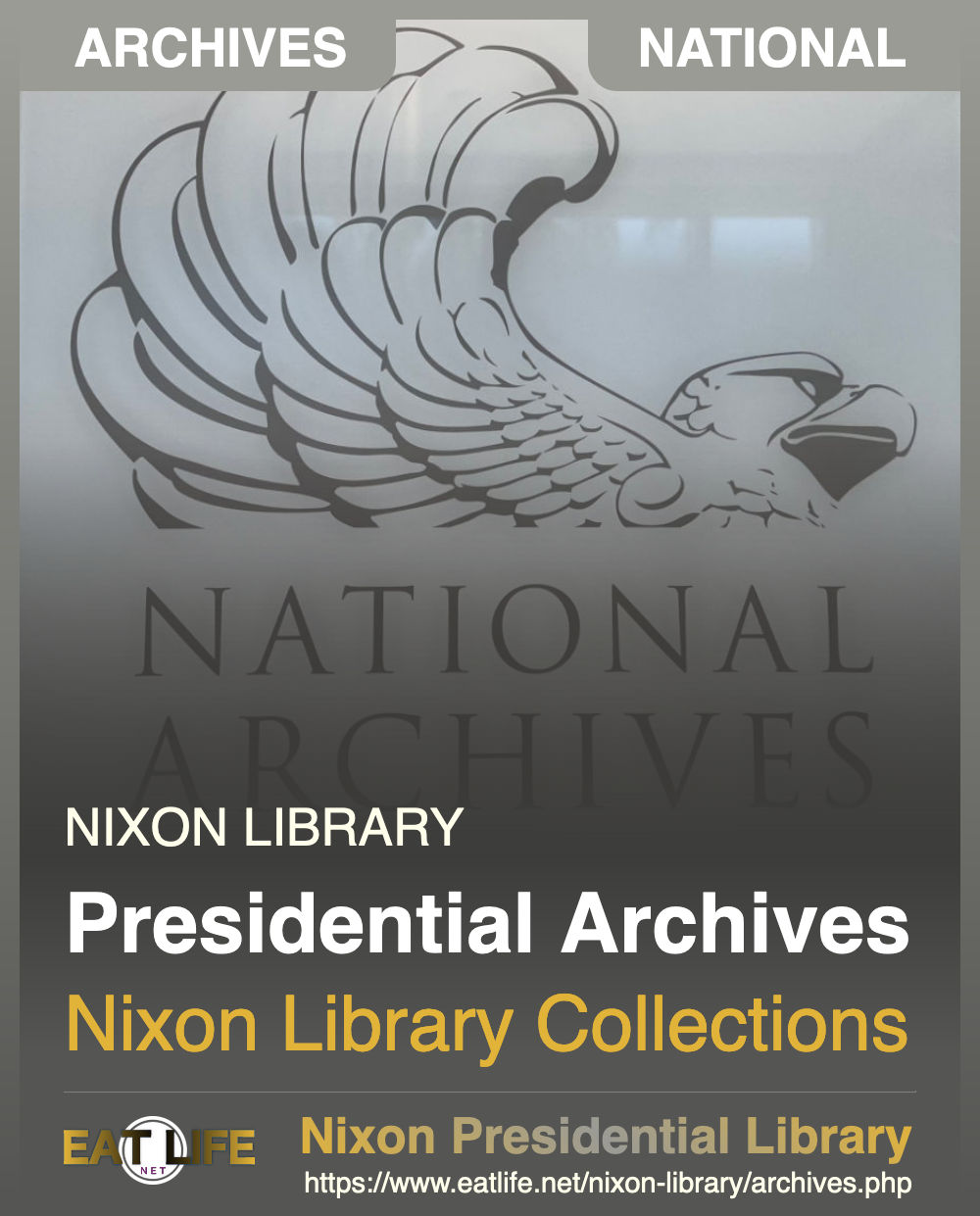- 46 million pages of documents - from handwritten notes to declassified top-secret memos.
- 500,000 photographs that provide a visual catalog of Richard Nixon's entire life and career, including 300,000 from the White House Photo Office collection.
- 9,000 hours of audio and visual holdings, one of the most extensive collections in the Presidential library system.
- 2,600 hours of currently released contents from President Nixon's White House tapes.




Early in his career, Richard Nixon developed the habit of writing out his thoughts on legal pads. These yellow notepads became a hallmark of Richard Nixon's way of working and thinking. Whether weighing different sides of an issue, drafting the main points of a speech, or noting down the content of conversations, Nixon honed his thinking through writing.
The Richard Nixon Presidential Library's collection of thousands of pages of these yellow pad notes - covering from his first days in Congress in 1947 to shortly before his death in 1994 - reveal what biographer Richard Reeves called "the most important dialogue in the White House": "the introvert's dialogue with himself."

I went up to my study in our place and sat down in the easy chair, as I usually did, with the yellow pad ...
- 1983

During his preparation for his historic trip to the People's Republic of China, President Nixon made notes about "what they want," "what we want," and "what we both want."
Nixon LibraryResearch Resources
The Richard Nixon Presidential Library and Museum is home to approximately 46 million pages of documents, and 3,700 hours of recorded Presidential conversations known as the “White House Tapes”, 4,000 separate recordings of broadcast video, nearly 4,500 audio recordings, 300,000 still photographs, 2 million feet of film, and more than 35,000 State and Public Gifts.
Nixon LibraryThe Presidential Daily Diary
The official record of President Nixon's meetings and telephone calls. Documents in this digital copy of the PDD include daily appointments calendars, lists of attendees at official functions, and passenger manifests for presidential transport.
Links to useful research resources that help to provide context to our collections.
That legislation was amended in 2004, and the Richard Nixon Library joined the Federal system in 2007.When the privately run Richard Nixon Library and Birthplace opened in 1990, the majority of Nixon administration materials were held, as required by an Act of Congress, in suburban Washington, DC.
The Richard Nixon Presidential Library is now one of 13 in the National Archives and Records Administration's system of Presidential libraries throughout the United States. (President Barack Obama's library will be the 14th.) The system of Presidential libraries was established by the Presidential Libraries Act in 1955 to provide a public repository of the papers and records from each administration and allow the Federal Government to take possession of these facilities. Today, Presidential libraries are built with privately raised funds and, once they are turned over to the Government, maintained and operated by the National Archives.








